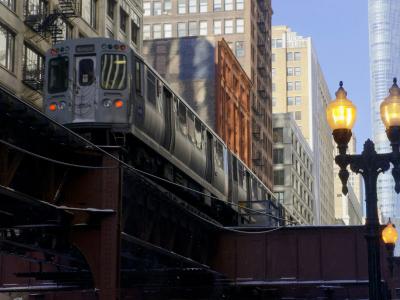-
State Data Overview
Across Illinois, there is a shortage of rental homes affordable and available to extremely low income households (ELI), whose incomes are at or below the poverty guideline or 30% of their area median income (AMI). Many of these households are severely cost burdened, spending more than half of their income on housing. Severely cost burdened poor households are more likely than other renters to sacrifice other necessities like healthy food and healthcare to pay the rent, and to experience unstable housing situations like evictions.
KeyFacts442,902Or27%Renter households that are extremely low income-293,767Shortage of rental homes affordable and available for extremely low income renters$32,020Average income limit for 4-person extremely low income household$61,997Annual household income needed to afford a two-bedroom rental home at HUD's Fair Market Rent.75%Percent of extremely low income renter households with severe cost burden -
State Level Partners
NLIHC Housing Advocacy Organizer

Billy Cerullo
State PartnersHousing Action Illinois
67 East Madison Street, Suite 1603
Chicago, IL 60603
P 312-939-6074
F 312-939-6822
www.housingactionil.orgSharon Legenza
Executive Director
[email protected]Bob Palmer
Policy Director
[email protected]Become an NLIHC State Partner
NLIHC’s affiliation with our state coalition partners is central to our advocacy efforts. Although our partners' involvement varies, they are all housing and homeless advocacy organizations engaged at the state and federal level. Many are traditional coalitions with a range of members; others are local organizations that serve more informally as NLIHC's point of contact.
Inquire about becoming a state partner by contacting [email protected]

-
Housing Trust FundHTF Implementation Information
NLIHC continues working with leaders in each state and the District of Columbia who will mobilize advocates in support of HTF allocation plans that benefit ELI renters to the greatest extent possible. Please contact the point person coordinating with NLIHC in your state (below) to find out about the public participation process and how you can be involved.
Current Year HTF Allocation$33,710,562
HTF State Resources2019
2019 Annual Action Plan with HTF Allocation Plan on page172 (PDF)
2018
Draft HTF Allocation Plan (PDF)
Permanent Supportive Housing RFP (PDF)
Final Annual Action Plan with HTF Allocation Plan on page 162 (PDF)
2017
HTF Allocation Plan (PDF)
2016
HUD-approved 2016 HTF Allocation Plan {basically just the first 6 pages} (PDF)
2016 Annual Action Plan with HTF Amendment Pending HUD Approval {see pages 125-128} (PDF)
Draft HTF Allocation Plan by Illinois Housing Development Authority (PDF)
Public comment letter from affordable housing and homelessness advocacy groups dated (PDF)
State Designated EntityState Entity Webpage
Illinois Housing Development AuthorityOfficial Directly Involved with HTF ImplementationDeirdre Kenny
Assistant Director of Compliance and Reporting
312-836-5284
[email protected]Burton Hughes
312-836-5320
[email protected]Daisy Marchan
[email protected]Evan Ponder
[email protected]NHTF-specific page
-
ResourcesResources
Housing Profiles
State Housing Profile
State Housing Profile: Illinois (PDF)
Congressional District Housing Profile
Congressional District Profile: Illinois (PDF)
Research and Data
National Housing Preservation Database
The National Housing Preservation Database is an address-level inventory of federally assisted rental housing in the United States.
Out of Reach: The High Cost of Housing
Out of Reach documents the gap between renters’ wages and the cost of rental housing. In Illinois and Nationwide
The Gap: A Shortage of Affordable Rental Homes
The Gap represents data on the affordable housing supply and housing cost burdens at the national, state, and metropolitan levels. In Illinois and Nationwide
Explore Other States
